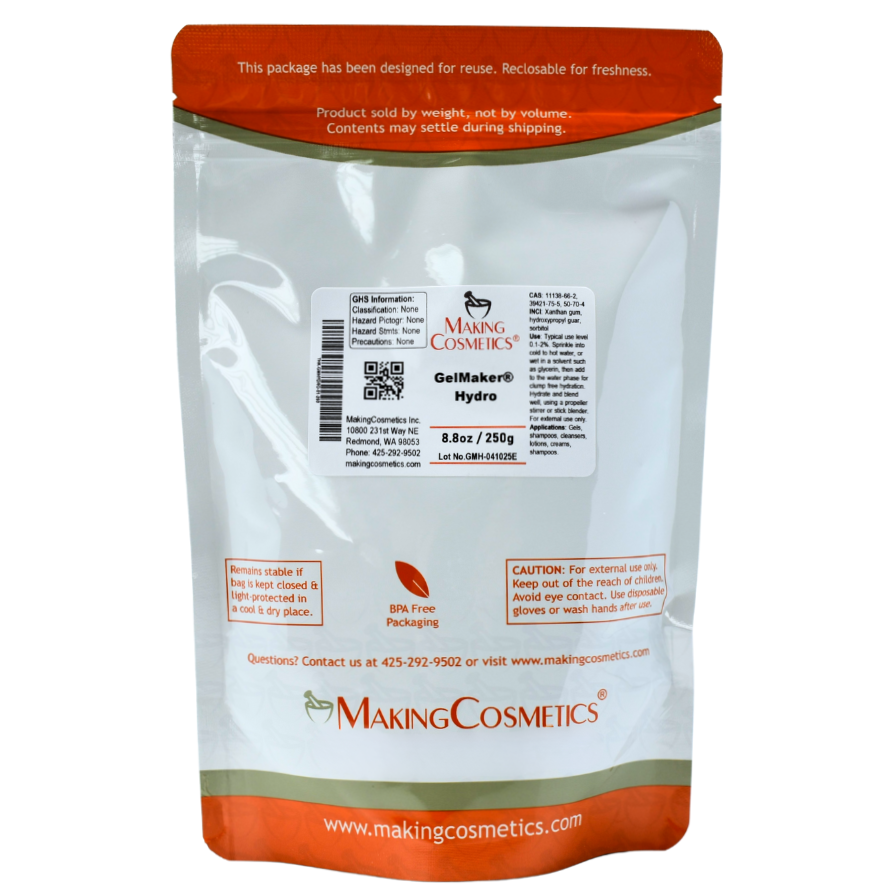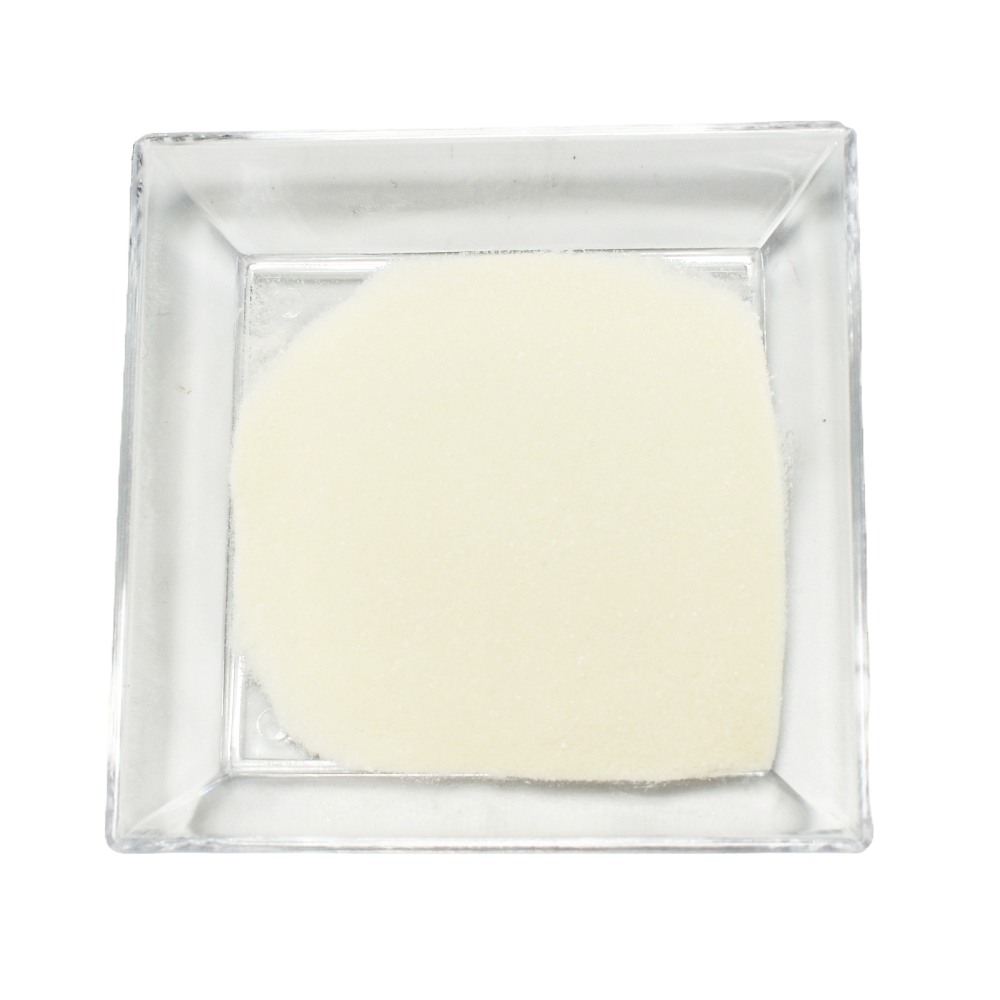Earn 200 Reward Points When You Create an Account
GelMaker® Hydro
Description
Description
Proprietary thickening blend made of xanthan gum, hydroxypropyl guar, and sorbitol. Ideal for thickening creams, lotions, cleansers, gels and shampoos. Gluten-free.
Benefits
- Non-gelling thickener (but binds water) and viscosity enhancer
- Provides volume and enhances foam in surfactants systems
- Stabilizes emulsions and has excellent salt and alcohol tolerance in aqueous solutions
- Provides smooth skin feel and has characteristic high level of lubricity
- Can act as suspending agent
- Has good film-forming properties
Use
Typical use level 0.1-2%. Sprinkle into cold to hot water, or wet in a solvent such as glycerin, then add to the water phase for clump free hydration. Hydrate and blend well, using a propeller stirrer or stick blender. For external use only.
Applications
Gels, shampoos, cleansers, lotions, creams, shampoos, shower gels
Details
CAS
11138-66-2, 39421-75-5, 50-70-4
INCI
Xanthan gum, hydroxypropyl guar, sorbitol
composition
Xanthan gum, hydroxypropyl guar, sorbitol
Purity Grade
No purity grade applicable
Appearance
Off-white to tan fine powder, characteristic odor
Solubility
Soluble in cold or warm water
Preservation
Preservative-free
Storage
Store in a closed container at a dry place at room temperature
Country of Origin
USA
Raw Material Source
Bacterium Xanthomonas campestris (for xanthan gum), guar beans (for hydroxypropyl guar), wheat-derived sugar (for sorbitol)
Manufacture
Xanthan gum is produced from the bacterium Xanthomonas campestris in the presence of a carbohydrate solution. The xanthan polymer is precipitated from the medium by the addition of isopropyl alcohol, and the precipitate is dried and milled to give a powder.Hydroxypropyl guar gum is produced by the thermo-mechanical treatment of the seeds of guar beans to obtain galactomannan which is then reacted with an alkylene oxide (propylene) in the presence of an alkaline catalyst (such as sodium hydroxide). Sorbitol is produced by hydrogenation of a sugar solution using a nickel or ruthenium catalyst. Using ion exchange, the crude sorbitol solution is then purified and evaporated to its final concentration
Animal Testing
Not animal tested
GMO
GMO-free (does not contain plant-derived components)
Vegan
Does not contain animal-derived components
HS Code
1301909100
Documents
Formulas
Related Formulas
You might also like

